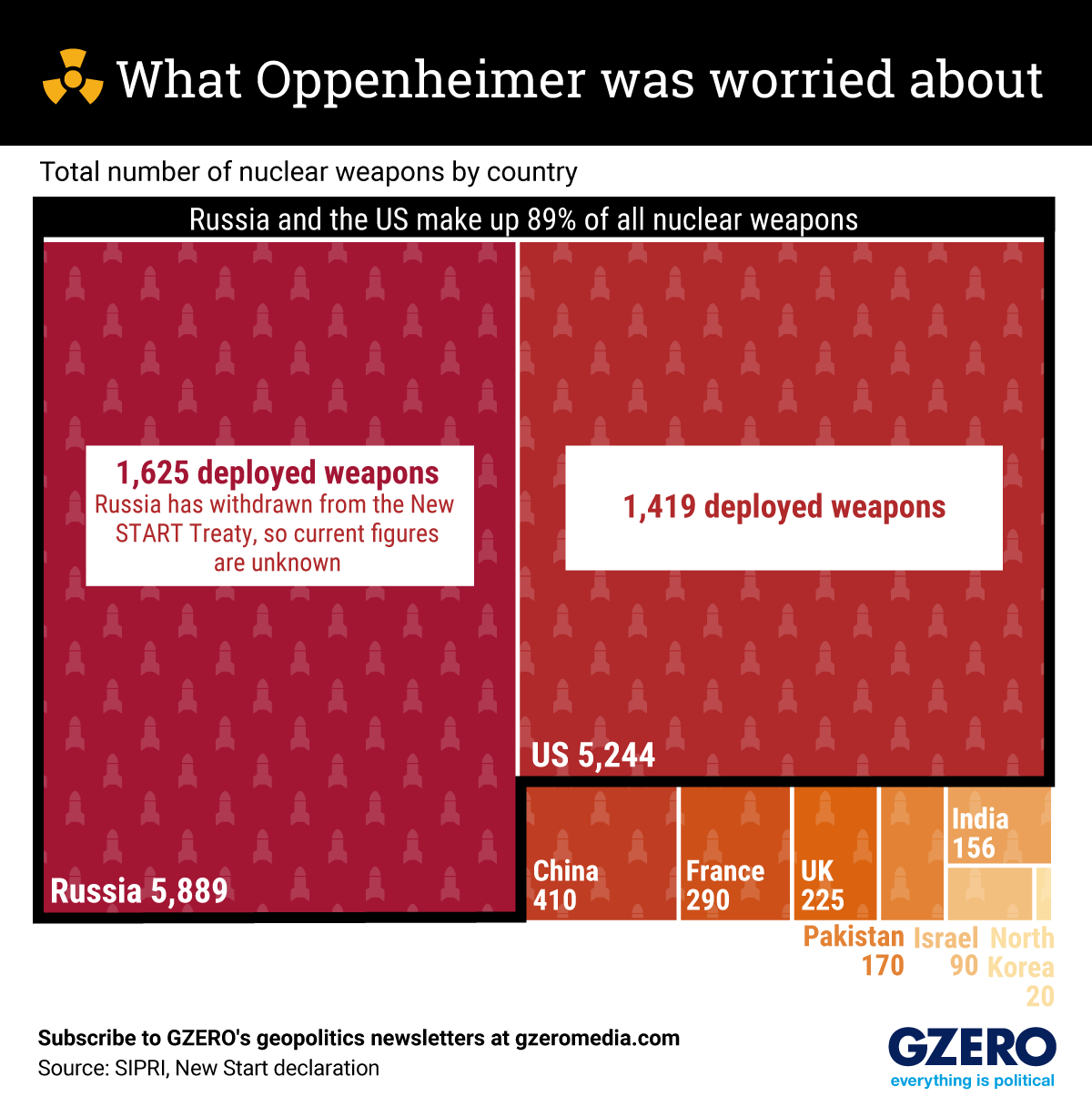After months of anticipation, it's D-Day for “Oppenheimer,” the $100 million Christopher Nolan biopic about J. Robert Oppenheimer, the celebrated American scientist who developed the first atomic bomb during World War II.
The journey of scientific revelation, brilliance, and execution is gripping enough, but an equally important part of Oppenheimer’s story is his postwar activism against the burgeoning nuclear arms race between Moscow and Washington. His calls to ditch nuclear weapons entirely helped to land him in the dock during the McCarthy hearings in the 1950s.
Was he right to worry? More than 75 years later, there are thousands of nuclear warheads in the world, each of which is vastly more destructive than anything Oppenheimer and his team worked on.
We take a look at who has the majority of those nuclear weapons today.
